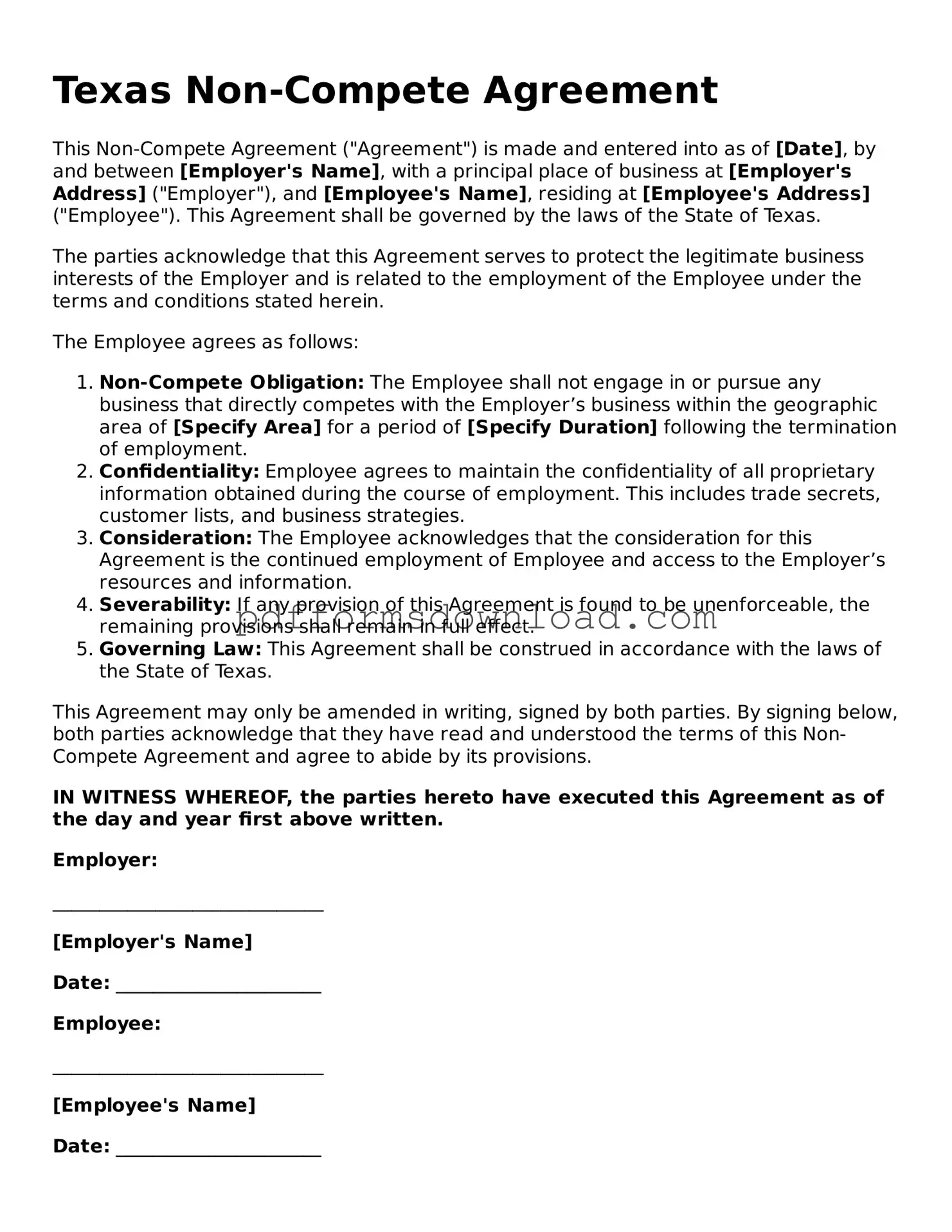Printable Texas Non-compete Agreement Form
A Texas Non-compete Agreement is a legal document that restricts an employee's ability to work in a similar profession or industry after leaving a job. This agreement is designed to protect a company's proprietary information and trade secrets. Understanding its implications is crucial for both employers and employees.
Take action now by filling out the form below to ensure you are informed and compliant with Texas regulations.
Make This Document Now

Printable Texas Non-compete Agreement Form
Make This Document Now

Make This Document Now
or
Free PDF File
Your form is almost ready
Complete your Non-compete Agreement online — edit, save, and download easily.